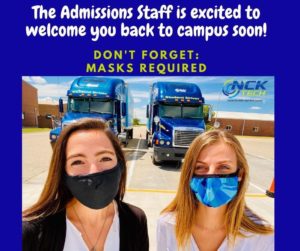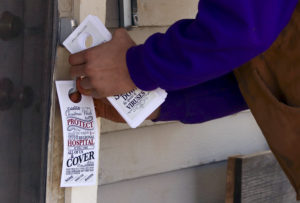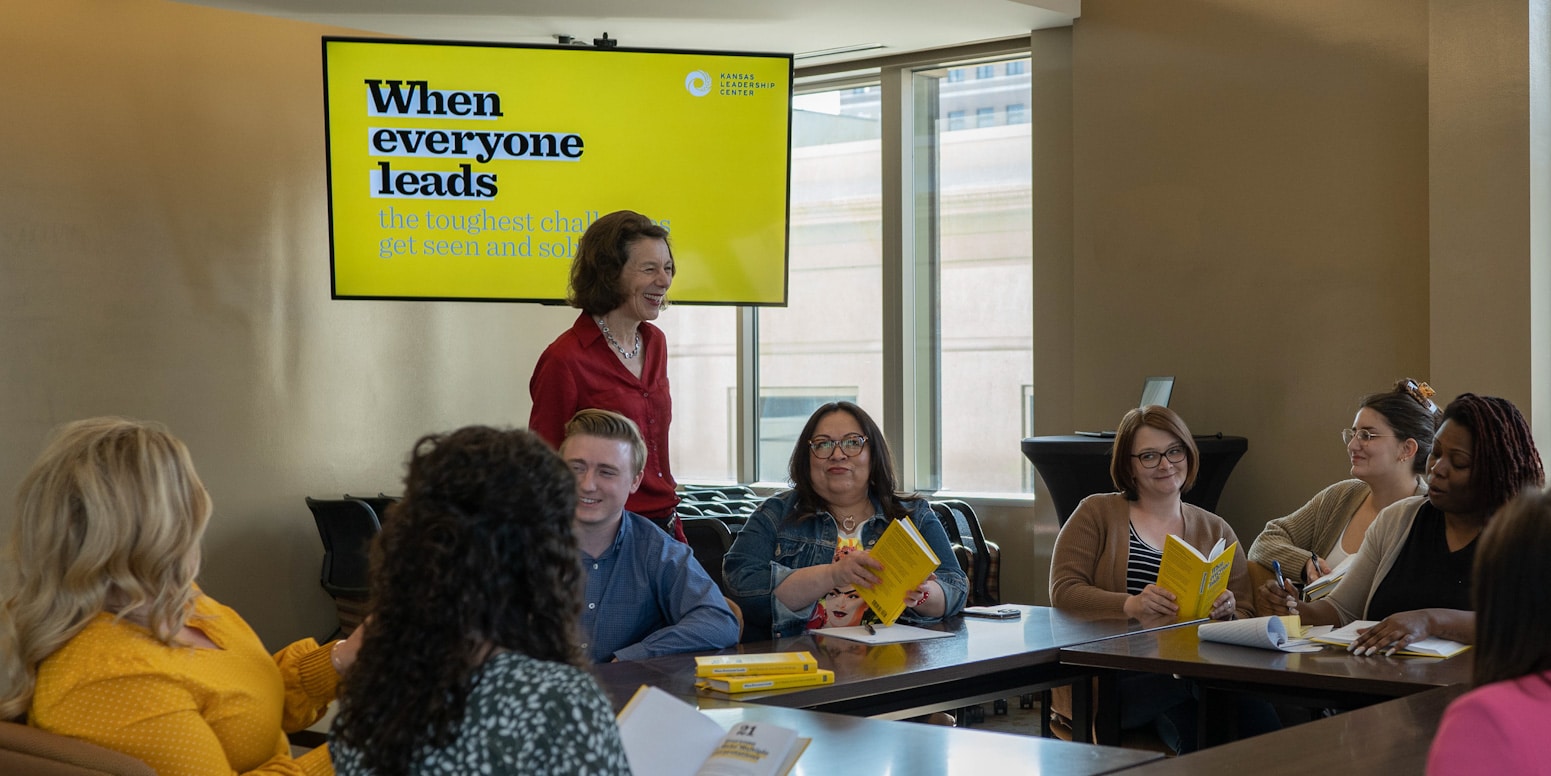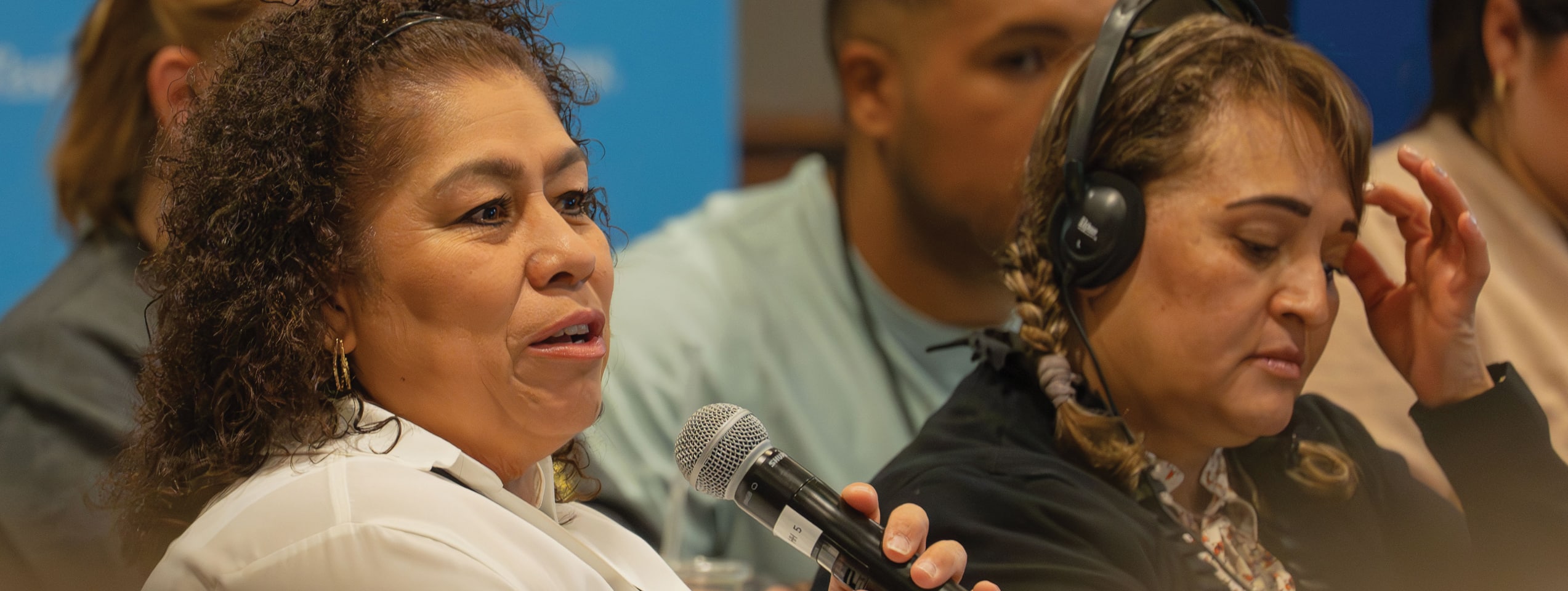Jessica Dethloff was nervous about attending her first student Senate meeting at NCK Tech in Beloit.
But it was hard to say no. Dethloff’s information technology instructor had encouraged her to go to the August meeting. The experience lit a spark, and now as vice president, she is helping lead a rescue mission of sorts: working to deliver “quarantine kits” to fellow students isolated by COVID-19.
The idea emerged from a brainstorming session held earlier this month as part of the Kansas Beats the Virus campaign, which seeks to harness the collective brainpower of thousands of Kansans in devising ways to stop the spread of COVID. The Kansas Leadership Center is coordinating the campaign in partnership with the state of Kansas.
Many take it for granted that such a weighty endeavor is best left to adults. That would be a mistake, as kids, teens and young adults are demonstrating in convenings around the state. The thinking is that peer-to-peer messaging might work best, and conversely, that young voices might get through to even the most crotchety of COVID-19 naysayers.

NCK Tech welcomed students back to campus in the summer with this Facebook message.
Elsewhere, Cub Scouts and Boy Scouts are devising ways to help the elderly.
In places like Ashland, leaders envision high school student council participation in public awareness campaigns.
And an idea by the women of Alpha Delta Pi sorority at Kansas State University — to hand out masks to students “caught” acting responsibly to prevent the spread of the virus — is indicative of the creative thinking contributed by campus Greeks.
As spontaneous as some of these efforts might be, Dethloff’s experience in Beloit, along with other efforts in Caldwell and Manhattan, indicate students might be prodded into action by gentle arm twisting or by simply providing them an outlet at a time when activities are curtailed.
Dethloff includes herself in the first category, given the circumstances of her first visit to the Senate. “I was kind of ‘voluntold’ to show up for the meetings at first.”
Then again, said Shane Britt, dean of student experience at NCK Tech, “I also think there’s that sense of — what can I do right now? I can’t go in and visit people in the nursing home right now, and maybe that’s what I used to be able to volunteer and do. … Whatever those volunteer things that maybe we used to be able to do, those are shut down. So this is a chance for those people to do something.”
The quarantine at NCK Tech kits are expected to include gift cards, basic necessities and activities, like coloring pages, to keep students occupied — along with paperwork that will help them return to class.
Meanwhile, in Caldwell, the pandemic prompted cancellation after cancellation for the high school’s National Honor Society and the 4-H club. Students typically relied on those clubs for required community service hours and just plain fun.
For NHS students, that was volunteering at the fifth grade Farm Safety Day, and taking the biannual educational trip to Washington, D.C. or New York City. The 4-H Club missed the annual Sumner County fair.
As a city commissioner and chair of Vision Caldwell, a grassroots effort to improve the physical, emotional and spiritual health of Caldwell, Jill Kuehny was among the participants in the December brainstorming session. Attendees also included a local pastor and hospital administrator.

High school students in Caldwell earned service hours and burned some calories distributing “masks up, numbers down” door hangers. (Submitted)
It was there that the participants hit upon involving the students in their planned Kansas Beats the Virus effort of distributing door hangers with the message “masks up, numbers down.” Their participation could replace those lost volunteer hours while also enlisting the most able and energetic in the community.
With a college-aged child herself, Kuehny has noticed an attitude among young people that they are not really a part the pandemic — that their lives can go on as normal despite the coronavirus. She hopes that by bringing them into the project, any disconnect between students and the reality of Covid-19’s impact can be corrected.
“Let’s bring them into this project,” Kuehny said. “At least they can go distribute it, and know that … they’re doing something to help their community with this disease. Instead of just stepping back and saying ‘Well, nothing to do with me.’”
In Manhattan, the Boys & Girls Club provides programming and support for students from elementary through high school, which they’ve done in-person since the summer. Pamela Nealey is the director of operations for the club.
Giving back to the community is part of the organization’s DNA — “we’re not a babysitting service. If they’re involved as a member, part of our formula for impact is community service, civic duty, things like that,” Nealey said.
In typical years, students go holiday caroling at nursing homes and volunteer at events with K-State, like helping out with the annual Bill Snyder half marathon and parking at football games. The pandemic put a stop to that.
So as part of Kansas Beats the Virus, Boys & Girls Club participants decided to create snack “paks” for essential workers and safety “paks” for club members’ parents, which they plan to fill with sanitizer, masks, disinfectant spray and county health guidelines. It will be a welcome alternative to the club’s traditional community service.
High school leaders are taking on much of the organizational responsibility alongside Nealey, while middle school students will get to make the bags (with gloves) at the club. Motivating the middle schoolers to get on board with projects like these isn’t too difficult, said Chalice Carter, one of the high school leaders — just having an older student participate can spark interest.
“I know as a middle schooler, if I had gotten the chance to work with high schoolers, I would’ve thought they were cool … so I would’ve wanted to do it,” Carter said.
And who knows, maybe the spark could lead one of the participants all the way to a student Senate position in college. Dethloff proved that a little nudge is all you need.
Celia Hack is a freelance writer from Westwood, Kansas who has covered local government, criminal justice, environmental issues and education for outlets including the The KLC Journal, the Shawnee Mission Post and the Brown Daily Herald. In addition to freelancing, she is studying environmental science and economics at Brown University, where she is a senior.


